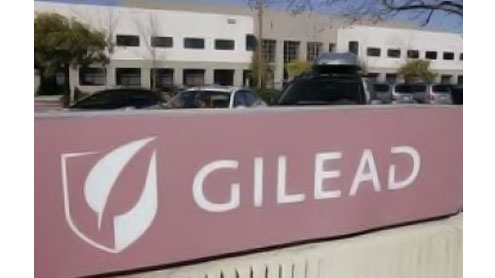 SAN DIEGO: Obesity and longevity have helped make diabetes an epidemic in much of the world, and drugmakers are jockeying to make sure their medicines are used early and often.Companies including Sanofi and Eli Lilly aim to introduce new classes of drugs that could further extend treatment options, and potentially their market share.Once diagnosed, people with type 2 diabetes are commonly treated with generic drugs, followed by several different classes of branded pills, injected medicines and eventually insulin.Some major pharmaceutical players are trying to gain an earlier foothold in that succession of treatment as the market for such drugs has grown dramatically, with global incidence of diabetes reaching nearly 350 million cases over the last 30 years.At the American Diabetes Association meeting in San Diego this week, Boehringer Ingelheim Pharmaceuticals and Lilly promoted their new oral drug, Tradjenta, as a better option for a patient’s next line of defense after generics. Tradjenta, also known as linagliptin, is a member of a class of oral drugs known as DPP-4 inhibitors.”Our focus is to be the first product to be added to metformin,” said John Smith, head of clinical development and medical affairs at Boehringer. Metformin is the generic pill initially prescribed for many diabetes patients.That goal may be helped by the fact that another class of branded diabetes drugs may be falling out of favor. Since patients now live for decades with diabetes, the safety profile of treatments has become even more important. Drugmakers face increased scrutiny of cardiovascular and cancer risks.
SAN DIEGO: Obesity and longevity have helped make diabetes an epidemic in much of the world, and drugmakers are jockeying to make sure their medicines are used early and often.Companies including Sanofi and Eli Lilly aim to introduce new classes of drugs that could further extend treatment options, and potentially their market share.Once diagnosed, people with type 2 diabetes are commonly treated with generic drugs, followed by several different classes of branded pills, injected medicines and eventually insulin.Some major pharmaceutical players are trying to gain an earlier foothold in that succession of treatment as the market for such drugs has grown dramatically, with global incidence of diabetes reaching nearly 350 million cases over the last 30 years.At the American Diabetes Association meeting in San Diego this week, Boehringer Ingelheim Pharmaceuticals and Lilly promoted their new oral drug, Tradjenta, as a better option for a patient’s next line of defense after generics. Tradjenta, also known as linagliptin, is a member of a class of oral drugs known as DPP-4 inhibitors.”Our focus is to be the first product to be added to metformin,” said John Smith, head of clinical development and medical affairs at Boehringer. Metformin is the generic pill initially prescribed for many diabetes patients.That goal may be helped by the fact that another class of branded diabetes drugs may be falling out of favor. Since patients now live for decades with diabetes, the safety profile of treatments has become even more important. Drugmakers face increased scrutiny of cardiovascular and cancer risks.
“Patients with type 2 diabetes are living longer, so there is a higher incidence of other problems,” said Dr. Joel Zonszein, director of the clinical diabetes center at Montefiore Medical Center in New York.Top-selling diabetes drug Actos, marketed by Takeda Pharmaceutical Co , is a high-profile example of the safety concerns. Recent data on the drug, with nearly $5 billion in annual sales, linked it to increased risk of bladder cancer if used for more than a year.U.S. health officials added that information to the drug’s label, while France and Germany suspended Actos sales.Actos is a thiazolidinedione — shortened to TZD or glitazone — designed to lower the body’s insulin resistance, the underlying problem for people with type 2 diabetes.Earlier versions of glitazones caused serious liver damage for some people and were withdrawn from the market. Avandia, a member of the same class sold by GlaxoSmithKline , has been linked to heart risks.
For Actos, “it is too early to say” whether the preliminary findings have had an impact on sales, said Dr. Robert Spanheimer, Takeda’s vice president, medical and scientific affairs. He said full results from the Actos safety trial will be available in 2013.Global sales of diabetes medicines totaled $35 billion last year and could rise to as much as $48 billion by 2015, according to research firm IMS Health, driven by increased prevalence and treatment, especially in countries such as China, India, Mexico and Brazil.”There is a large amount of people who don’t know they have diabetes,” said Dr. Stuart Weinerman, chief of endocrinology at North Shore-Long Island Jewish Health System in New Hyde Park, New York. “There is an even larger group of people that have diabetes and don’t control it adequately.”IMS also forecast growing use of oral diabetes medicines due to their convenience and efficacy.”The aim is to preserve the option of oral therapy for as long as possible,” said Boehringer’s Smith.
Boehringer is also developing a member of a new class of drugs known as SGLT2 inhibitors, which are designed to block glucose from being absorbed into the bloodstream through the kidneys, allowing more sugar to be excreted with urine.New data on another experimental SGLT2 inhibitor, dapafliglozin from Bristol-Myers Squibb and AstraZeneca , showed that it was effective in a two-year study. But more bladder and breast cancers were found in patients treated with the drug.”The probability of these drugs causing cancer is very, very low … the duration of the trials was too short,” said Zonszein.Lilly also featured information on Byetta, an injectable GLP-1 drug co-marketed with Amylin Pharmaceuticals , which is suing Lilly over its deal with Boehringer.
Amylin presented data at the conference showing no significant link between use of Byetta and heart rhythms, which is important since U.S. regulators have asked for a heart risk trial of the company’s once-weekly GLP-1 drug, Bydureon.That data is expected soon and Amylin said it plans to refile for U.S. regulatory approval of Bydureon in the second half of this year.Drugmakers are also working on improved versions of insulin, the blood-sugar controlling hormone that is missing in people with type 1 diabetes and can be needed by patients with the more common type 2 diabetes.
Novo Nordisk , the world’s biggest insulin producer, showed that its experimental long-acting insulin, degludec, lowered blood sugar levels with less risk of hypoglycemia, compared with Sanofi’s Lantus.Degludec is formulated with spacer molecules to provide a more steady rate of absorption than current insulins, said Alan Moses, Novo Nordisk’s chief medical officer.”It lines up like pearls on a string … the insulin just basically drops off one molecule at a time from the ends,” he explained.Sanofi’s diabetes division head, Dennis Urbaniak, said the French drugmaker aims to hold its market share with Lantus.”Lots of other folks are trying to change that position,” he said. – Yahoonews












